Stepping into a courtroom as a defendant in Nevada can be daunting.
The process, the people, and the proceedings may all seem overwhelming. This guide aims to clarify defendants’ expectations during a criminal jury trial in Nevada.
Understanding each step will help you navigate the journey more confidently. This includes everything from jury selection to the final verdict.

 The Jury Selection Process
The Jury Selection Process
Understanding the Voir Dire
The first step in your trial will be the selection of a jury. This process, known as Voir Dire, is critical to ensuring a fair trial.
Role of the Judge and Lawyers in Jury Selection
During Voir Dire, both the judge and the lawyers have specific roles:
The Judge: Oversees the process, ensuring it adheres to legal standards.
The Lawyers: Question the potential jurors to determine their suitability.
Criteria for Selecting Jurors
Jurors are selected based on:
Impartiality: They must be able to judge the case fairly.
Relevance: Their background and experiences shouldn’t bias them against the defendant or the case.
Rights of the Defendant in Jury Selection
As a defendant, you have rights during this process.
Challenges for Cause
If a potential juror appears biased, your lawyer can request their removal for cause.
Peremptory Challenges
Your defense team has limited peremptory challenges. They can dismiss jurors without stating a reason.
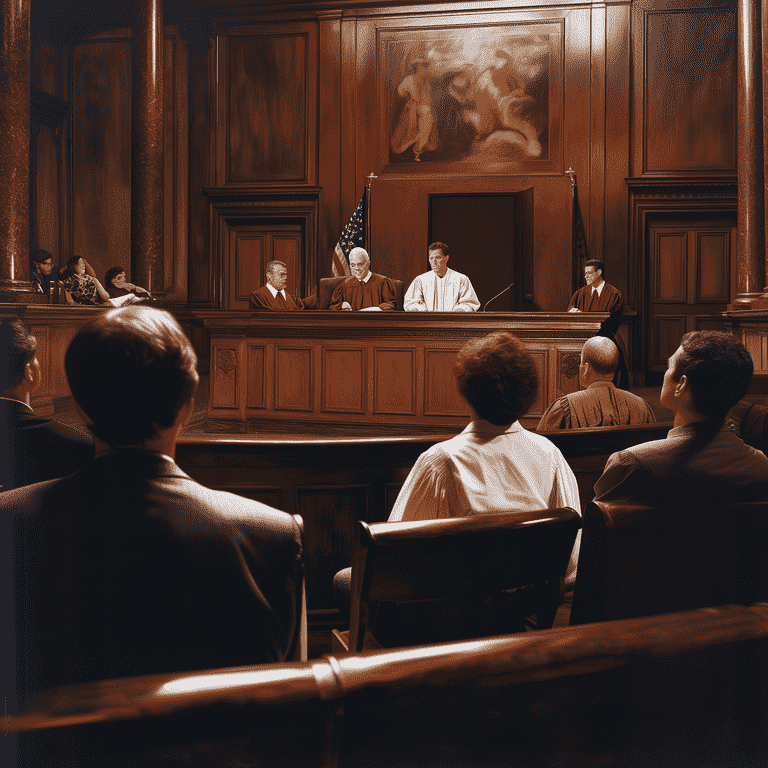
Opening Statements
The opening statements set the stage for the trial.
Purpose of Opening Statements
The aim here is to:
Outline the Case: Each side presents its version of events.
Persuade the Jury: The goal is to immediately influence the jury’s perception.
Strategies Used in Opening Statements
Setting the Tone for the Trial
Prosecutor’s Approach: They will likely assert the guilt of the defendant.
Defense’s Approach: Your lawyer will work to create doubt about the prosecution’s claims.
Outlining Key Arguments
Key Evidence: Highlighting crucial evidence that supports your case.
Witness Testimony: Giving the jury a preview of what to expect from witnesses.
This initial overview offers a clear, easy-to-understand guide to what defendants can expect during the early stages of a criminal jury trial in Nevada. The following sections will delve deeper into the subsequent phases of the trial. They will provide comprehensive insights into each step.
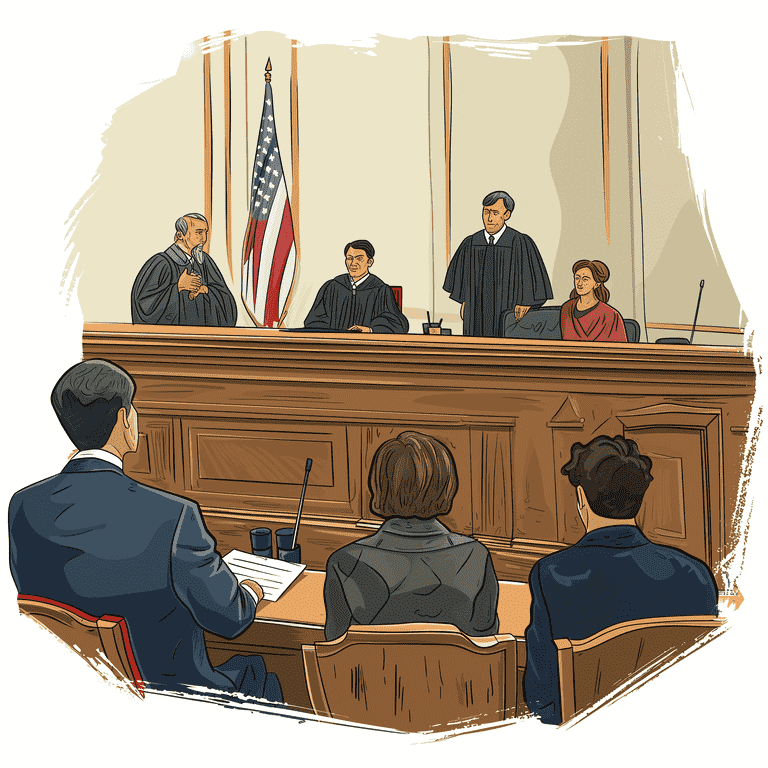
Presentation of Evidence
This is where the meat of the trial lies. Both sides will present their evidence to support their claims.
The Role of the Prosecutor
The prosecutor goes first, laying out the case against you.
Burden of Proof
The prosecutor must prove your guilt “beyond a reasonable doubt.”
This is a high standard, ensuring that uncertainty works in your favor.
Types of Evidence Presented
Physical Evidence: Items or objects related to the crime.
Testimonial Evidence: Statements from witnesses or experts.
The Role of the Defense
Your defense team will respond to the prosecutor’s evidence.
Contesting Evidence
Challenging the reliability or legality of the evidence.
Questioning the methods used to get the evidence.
Presenting Counter-Evidence
Introducing evidence that supports your innocence.
Bringing in your witnesses to counter the prosecution’s claims.
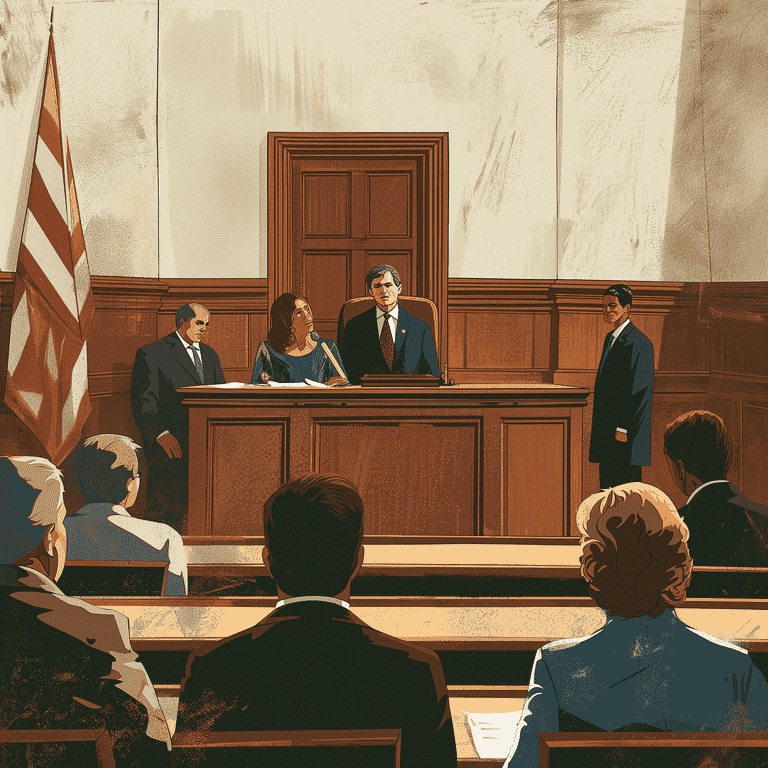
Witness Testimony and Cross-Examination
Witnesses play a crucial role in how the jury perceives the case.
Understanding Witness Testimony
Types of Witnesses
Eyewitnesses: Who saw what happened.
Expert Witnesses: Specialists who provide technical or scientific insights.
Examination of Witnesses
Direct examination by the side that called them.
Aimed at establishing the facts supporting that side’s argument.
The Process of Cross-Examination
Objectives of Cross-Examination
To find inconsistencies or weaknesses in the testimony.
To challenge the credibility of the witness.
Techniques Used in Cross-Examination
Asking leading questions.
Highlighting contradictions in the witness’s testimony.
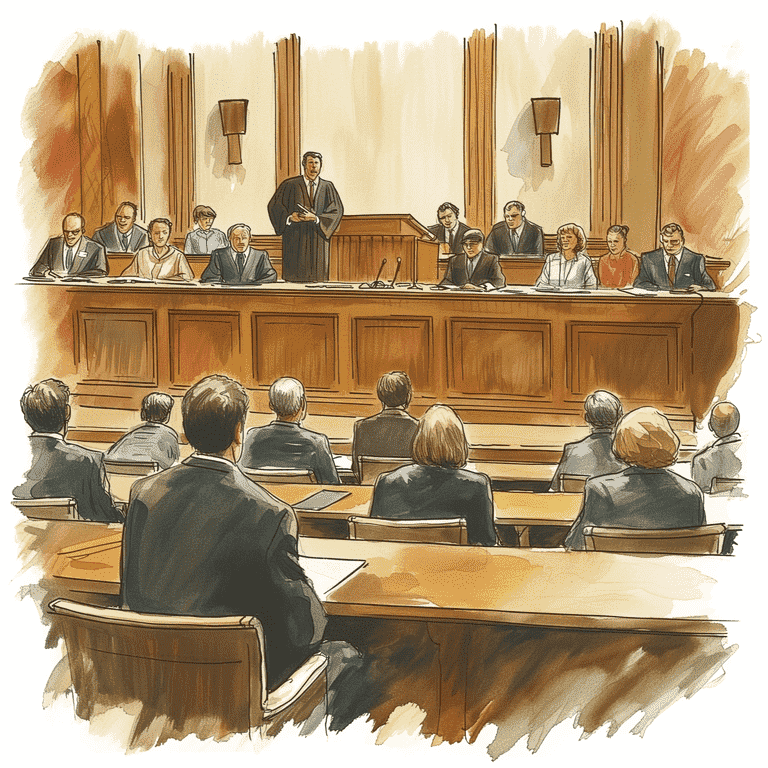
Closing Arguments
This is the final opportunity for each side to sway the jury.
Purpose and Structure of Closing Arguments
Prosecutor’s Closing Argument
Summarizes the evidence presented.
Argues why this evidence proves the defendant’s guilt.
Defense’s Closing Argument
Highlights the weaknesses in the prosecutor’s case.
Reinforces any doubt about your guilt.
Persuasion and Summarization Techniques
Reinforcing Key Points
Restating the most substantial arguments from the trial.
Emphasizing evidence that supports your case.
Addressing Weaknesses in the Case
Acknowledging any weaker aspects of your case.
Explaining why these don’t amount to proof of guilt.
In these sections, we have explored the crucial stages of a criminal jury trial in Nevada.
We focused on the presentation of evidence, witness dynamics, and the power of closing arguments.
These insights provide a clear and engaging understanding of what a defendant can expect as the trial progresses.
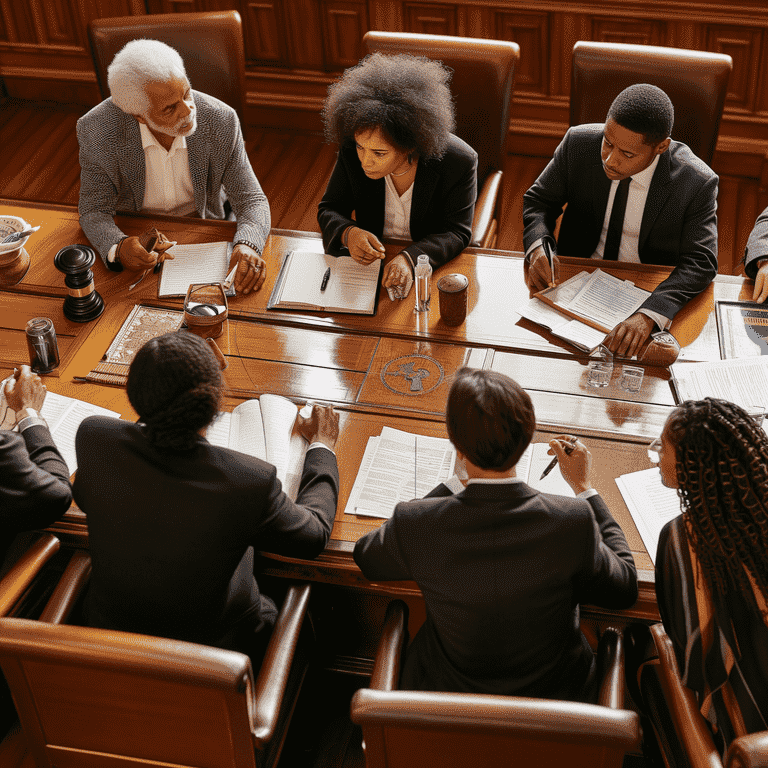
Jury Deliberation and Verdict
After the closing arguments, the jury retreats to deliberate. They ultimately decide your fate.
The Jury Deliberation Process
Instructions from the Judge
The judge provides specific guidelines on legal principles.
These instructions guide the jury’s decision-making.
Discussion and Evaluation of Evidence
Jurors review all presented evidence.
They must reach a unanimous decision in most criminal cases.
Understanding the Verdict
Unanimous vs. Non-Unanimous Decisions
A unanimous verdict is required for conviction or acquittal.
If the jury can’t agree, it may result in a hung jury.
Potential Outcomes
Guilty Verdict: Conviction on the charges.
Not Guilty Verdict: Acquittal of the charges.

Post-Trial Motions and Sentencing
If found guilty, the trial moves into its final phases.
Types of Post-Trial Motions
Motion for a New Trial
Request if there were significant legal errors during the trial.
Aims to secure a reevaluation of the case.
Motion to Set Aside the Verdict
Sought if the verdict is considered unjust.
Challenges the legal basis of the jury’s decision.
Sentencing Phase
Factors Influencing Sentencing
Severity of the crime.
Defendant’s criminal history.
Circumstances surrounding the crime.
Role of Victim Impact Statements
Victims or their families may speak about the crime’s impact.
These statements can influence the severity of the sentence.
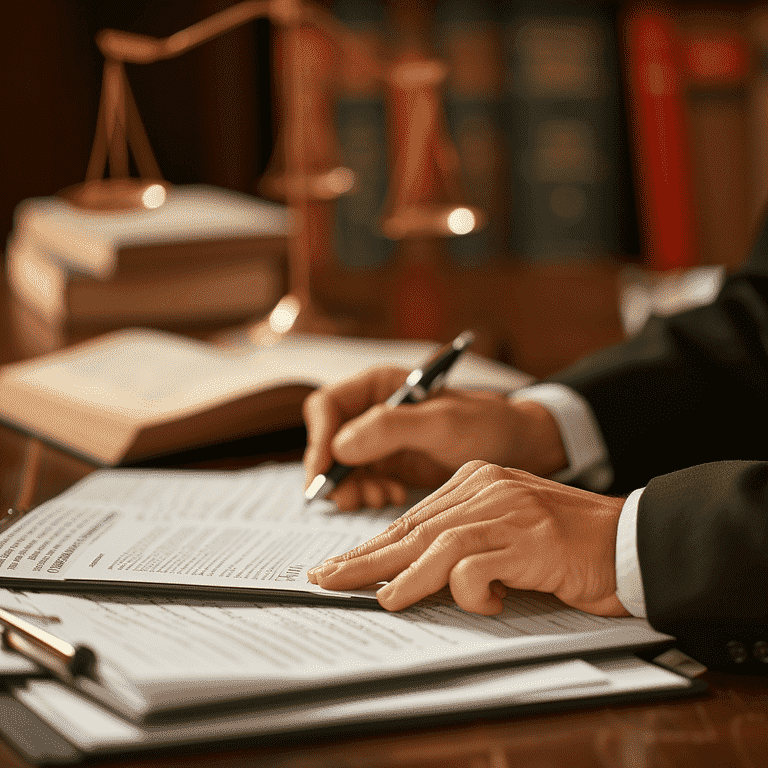
Appeals Process
The legal journey may not end with the trial verdict.
Grounds for Appeal in Criminal Trials
Legal Errors
Mistakes in applying the law.
Improperly admitted evidence.
Evidentiary Issues
Questions about the sufficiency of evidence to support the verdict.
The Appeals Procedure
Filing an Appeal
Must be filed within a specified time after the verdict.
Based on specific legal grounds, not just dissatisfaction with the verdict.
Appellate Court Review
Reviews the trial’s record for legal errors.
Does not involve a new trial with witnesses or new evidence.
Why You Have Not Hired a Felony Defense Attorney Yet
Watch this short video to take the next big step toward defending your rights against a felony charge.

Breaking It All Down for You
Navigating a criminal jury trial in Nevada can be complex and emotionally taxing. Understanding each step empowers you. You’ll learn about jury selection and the possibility of appeal. It helps you face the process with awareness and preparedness. Remember, while this guide provides a comprehensive overview, each case is unique. The importance of experienced legal counsel cannot be overstated.

Frequently Asked Questions
What are the key factors to consider when deciding whether to file for divorce first?
When deciding whether to file for divorce first, consider your safety and the safety of your children, especially if there is a history of domestic violence or abuse. Think about the potential impact on your finances, including the cost of filing fees and the possibility of securing temporary support. Reflect on the emotional toll of initiating the divorce process and how it may affect your relationship with your spouse and children. Also, consider the strategic advantages of setting the tone for the proceedings and having more control over the initial narrative.
How can I protect my assets if I decide to file for divorce first?
To protect your assets when filing for divorce first, gather and organize important financial documents, such as bank statements, tax returns, and property deeds. Open separate bank accounts and credit cards in your name to establish financial independence. Consider consulting with a financial advisor to develop a plan for managing your assets during and after the divorce. Be transparent and honest about your assets to avoid accusations of hiding or dissipating marital property.
What steps should I take to prepare emotionally for filing for divorce?
To prepare emotionally for filing for divorce, seek support from trusted friends, family members, or a therapist to help you process your feelings and develop coping strategies. Practice self-care by engaging in activities that promote physical, mental, and emotional well-being, such as exercise, meditation, or hobbies. Set realistic expectations for the divorce process and be prepared for a range of emotions, including grief, anger, and relief. Focus on maintaining a stable and nurturing environment for your children, if applicable, and prioritize their well-being throughout the process.
How can I minimize the impact of divorce on my children?
To minimize the impact of divorce on your children, communicate openly and honestly with them about the divorce in an age-appropriate manner, emphasizing that it is not their fault. Maintain a consistent and stable routine for your children, including school, extracurricular activities, and time with both parents when possible. Avoid speaking negatively about your spouse in front of your children and encourage them to maintain a relationship with both parents. Consider working with a child therapist or enrolling in co-parenting classes to develop strategies for supporting your children’s emotional needs.
What are the residency requirements for filing for divorce in Nevada?
To file for divorce in Nevada, either you or your spouse must have resided in the state for at least six weeks before filing. You must also have the intent to remain in Nevada indefinitely. If you have children, they must have lived in Nevada for at least six months before filing, unless there are emergency circumstances.
Can I file for divorce in Nevada if my spouse lives in another state?
Yes, you can file for divorce in Nevada even if your spouse lives in another state, as long as you meet the residency requirements. However, the court may have limited jurisdiction over your spouse, which can impact issues such as property division and spousal support. It’s essential to consult with an attorney to understand the implications of filing for divorce when your spouse resides elsewhere.
How much does it cost to file for divorce in Nevada?
The cost of filing for divorce in Nevada varies by county but typically ranges from $250 to $300. This fee covers the initial filing of the divorce complaint. Additional costs may include service fees, attorney fees, and fees for any necessary experts or professionals involved in your case. Some counties offer fee waivers for low-income individuals who cannot afford the filing fees.
What is the difference between a contested and uncontested divorce in Nevada?
In an uncontested divorce, both parties agree on all terms of the divorce, including property division, spousal support, and child custody and support, if applicable. An uncontested divorce is typically faster and less expensive than a contested divorce.
In a contested divorce, the parties disagree on one or more terms of the divorce, requiring the court to intervene and make decisions. Contested divorces often involve more complex legal issues and can take longer to resolve.
How can I serve divorce papers on my spouse in Nevada?
In Nevada, you must serve your spouse with the divorce complaint and summons after filing. You can serve your spouse by personal service through a licensed process server or law enforcement officer, by mail with your spouse signing and returning an acknowledgment of receipt, or by publication in a local newspaper if you cannot locate your spouse. It’s crucial to follow the proper procedures for serving divorce papers to ensure your case can move forward.
What is the role of a divorce attorney, and how can I find one in Nevada?
A divorce attorney’s role is to guide you through the legal process, protect your rights and interests, and help you achieve your goals for the divorce. Your attorney will provide legal advice, draft and file necessary documents, negotiate with your spouse’s attorney, and represent you in court hearings.
To find a divorce attorney in Nevada, ask for referrals from friends, family, or other professionals, such as accountants or therapists. Research attorneys online, focusing on those who specialize in family law and have experience handling cases similar to yours. Schedule consultations with potential attorneys to discuss your case, their approach, and their fees. Choose an attorney who you feel comfortable with, who communicates clearly, and who aligns with your goals and values.

Glossary
Appeal: A request made to a higher court to review the decision made by a lower court. It is based on arguing legal errors that may have affected the verdict or sentencing.
Bench Trial: A trial conducted without a jury, where the judge is the sole decider of the case’s outcome.
Burden of Proof: The obligation of one party in a trial to prove that the facts they are presenting are actual. In criminal trials, this burden rests on the prosecution.
Cross-examination: The questioning of a witness by the opposing side in a trial, typically done after the witness has been questioned by the side that called them.
Defendant: The individual or entity accused of a crime in a criminal trial.
Direct Examination: The initial questioning of a witness by the party that called them to testify.
Evidence: Any material presented in court to support or refute an argument, including physical objects, witness testimonies, documents, and photographs.
Expert Witness: A person with specialized knowledge or expertise in a particular field is called to testify in a trial to offer their expert opinion.
Hung Jury: A jury that cannot reach a unanimous decision, leading to a mistrial.
Jury Deliberation: The process where the jury discusses the case privately to reach a verdict after hearing the evidence and arguments presented during the trial.
Mistrial: An invalidated trial that does not conclude due to a procedural error or a hung jury.
Motion for a New Trial: A request by the defense for a new trial on the grounds of significant errors or problems in the original trial.
Peremptory Challenge: A right in jury selection for the attorneys to reject a certain number of potential jurors without stating a reason.
Prosecutor: The lawyer representing the government and bringing the case against the defendant in a criminal trial.
Sentencing Phase: The stage in a criminal trial following a guilty verdict where the judge determines the appropriate punishment for the defendant.
Testimonial Evidence: Evidence provided through the oral testimony of witnesses during a trial.
Unanimous Verdict: A jury decision where all members agree on the verdict, whether it is guilty or not guilty.
Voir Dire: The jury selection process where the judge and attorneys question potential jurors to determine their suitability to serve on the jury.
Witness Testimony: The spoken evidence a witness provides under oath during a trial.
Additional Resources for You

Our lead attorney, Molly Rosenblum Allen, Esq., is not just committed to representing our clients but also to educating and assisting the community in understanding the complexities of the legal system. To support individuals in their time of need, she has created a series of comprehensive resources that cover various important legal topics. These resources are designed to provide clarity and guidance on key issues that individuals may encounter. Here’s an overview of the resources available:
Double Jeopardy: Gain insights into the legal principle that prohibits an individual from being tried twice for the same offense. Learn more.
Hung Jury: Understand what happens when a jury cannot agree upon a verdict and the implications it may have on a legal case. Explore further.
Circumstantial Evidence: Delve into the nuances of evidence that implies a fact or event without directly proving it. Discover details.
Indicted vs Charged: Clarify the differences between being indicted and being charged, and the significance of each in the legal process. Read more.
Difference Between Jail and Prison: Learn about the distinct differences between these two types of detention facilities. Find out more.
What are Miranda Rights: Understand the critical rights that are recited to suspects upon arrest and their importance in protecting individual freedoms. Get informed.
How to Check if You Have an Outstanding Warrant: Navigate the process of checking for outstanding warrants to ensure you can address any issues proactively. Start here.
What to Look for in a Criminal Defense Lawyer: Know what qualifications and traits to consider when seeking legal representation in criminal cases. Learn the criteria.
Possible Ways to Reduce a Felony Charge: Explore strategies that may be employed to reduce the severity of a felony charge. Discover possibilities.
Should You Accept a Plea Bargain: Consider the pros and cons of accepting a plea bargain and how it can impact your case. Weigh your options.
Each of these resources is crafted with the intent to provide clear, accessible information to help individuals navigate through their legal challenges confidently. We encourage our readers to utilize these resources and reach out for professional legal guidance when needed.

Offsite Resources You May Find Helpful
Here are several offsite resources
that are related to the content and might be useful for readers seeking further information:
American Bar Association (ABA): A prominent organization offering resources and guidance on various legal matters. Visit ABA
National Association of Criminal Defense Lawyers (NACDL): A professional association that provides resources and support for criminal defense attorneys. Visit NACDL
FindLaw: A comprehensive resource for legal information, including articles and guides on criminal law and the legal process. Visit FindLaw
Justia: Offers a wide range of legal resources, including case law, statutes, and information on different legal topics. Visit Justia
National Legal Aid & Defender Association (NLADA): Provides support and resources for legal aid and public defense. Visit NLADA
NOLO: Specializes in providing legal information and self-help resources to the public. Visit NOLO
The Innocence Project: An organization dedicated to exonerating the wrongly convicted through DNA testing and reforming the criminal justice system. Visit The Innocence Project
These resources offer a range of information and support that can be valuable to anyone interested in criminal law, legal processes, or seeking legal aid.

A Special Message From Our Lead Attorney
Why You Might Need a Lawyer

Molly Rosenblum, Esq
Dear Reader,
Thank you so much for taking the time to explore our legal resources. I hope you found the information insightful. I hope it was beneficial for your understanding of the criminal justice process in Nevada.
If you have more questions or need personalized legal advice, I invite you to schedule a free consultation. Please feel free to call us at (702) 433-2889. Our team at The Rosenblum Allen Law Firm is dedicated to providing you with the support and guidance you need during your legal journey.
I am looking forward to the opportunity to assist you.
Best regards,
Molly Rosenblum, Esq.


